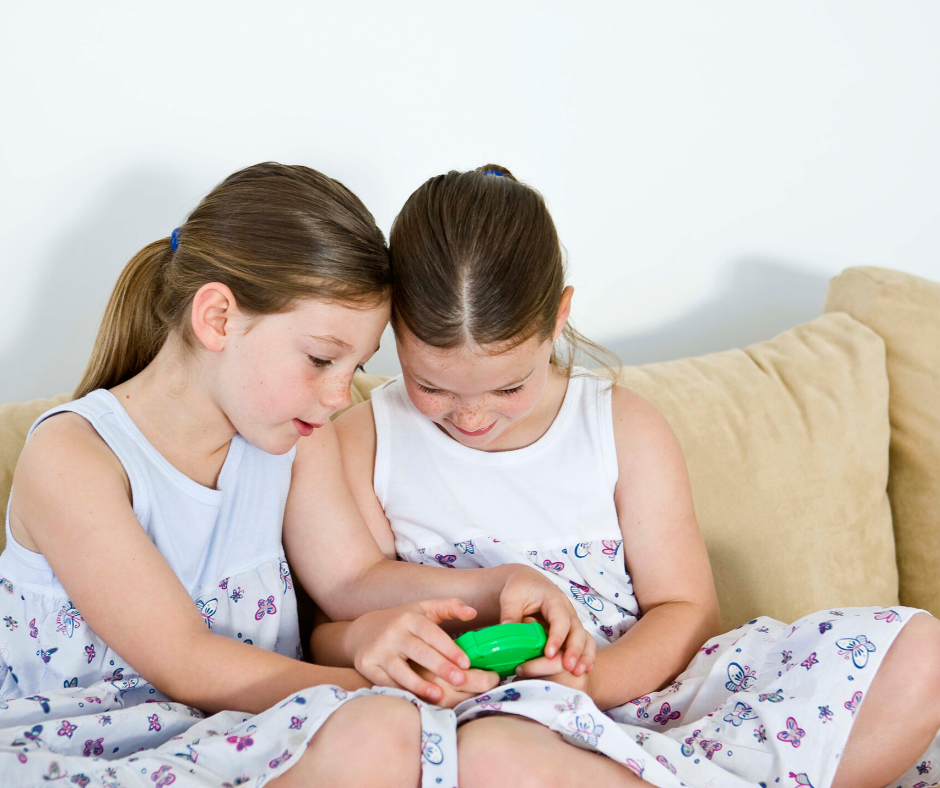Helping your child learn to cooperate with others is incredibly important as a basic social skill, but it’s often more than that. Cooperation is a community skill that benefits us all as a whole.
Learning how to cooperate with others when young has far reaching benefits as your child gets older.
The trick is teaching your child to cooperate by helping them understand that following rules and requests is really a benefit to them.
What is cooperation?
Cooperation is the ability to work together to satisfy your own needs and the needs of someone else.
Unlike compliance, where your child is simply doing what you want, cooperation involves toward a single goal. It’s a give and take activity where the end result is mutually satisfying.
Examples of Cooperation in Children

Compliance is often mistaken for cooperation, and it is true that there is some overlap there.
However, the main difference comes in the way tasks are accomplished.
For example, compliance would mean telling a toddler not scream while they wait for their lunch to be made. On the flip side, cooperation would be asking your toddler to wait patiently while lunch is being made, so your toddler decides to play at the table while they wait.
A few more examples of cooperation:
- A preschooler helping load clothes in the washing machine on laundry day
- An older child setting the table before dinner
- A group of children taking turns going down the slide so that everyone gets a turn
- Two toddlers take turns painting with different colors
Tips to Help Your Child Learn to Cooperate

Developing your child’s cooperation skills allows them to experience a multitude of social and emotional benefits.
Children who learn to successfully cooperate have better relationships with their peers, develop a stronger sense of empathy, and are involved in a reduced level of conflict.
Offer Explanations
You can help your child learn to cooperate by offering explanations for rules and limitations whenever possible, especially during the formative early toddler stages of development when their independence often clashes with their ability.
Learn to Take Turns
Learning to take turns will helps your child understand delayed gratification and patience along with cooperation.
Try starting as young as 6-9 months old and continue to encourage taking turns playing with an object, putting toys away, or leading an activity all the way through your child’s preschool years.

Ask Questions and Talk Through Solutions
Children love options and problem solving, so try doing both whenever you can.
Avoid just putting a rule in place and telling your child not to do something, like coloring on the wall, for example.
Instead, remind your child of the limitation and ask a question.
“Is there somewhere else you could color instead?” you can ask.
Then provide options like paper or coloring books as a better alternative to coloring on inappropriate surfaces.
Encourage a Growth Mindset
Having a growth mindset allows children to focus on their effort rather than a specific label, and offering specific praise for specific cooperative efforts is a great way to encourage a growth mindset while building their sense of cooperation.
Try doing household chores together and focusing on their efforts.
You might say, “Look at all the block you put in the box! Great job putting those away. See how much we cleaned up together?”
Books to Teach Your Child to Cooperate

Reading reinforces many concepts your child is learning throughout the day. You can reinforce cooperation by adding one or more of these stories to your next story time!
The Inspired Treehouse also has a huge list of activities to do with your child to encourage even more learning through play!
Or you could try one of our craft activities for kids.

